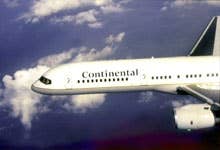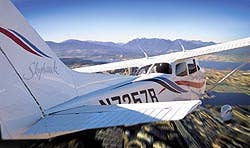FAA Closing Certification Loophole
The FAA is closing a loophole that could affect some would-be airplane manufacturers who thought they’d found a cheap way to certificate their creations. The agency has issued a Notice of Proposed Rulemaking that will eliminate Sec. 21.183(d), an obscure clause that allows companies to apply for an airworthiness certificate without first having a type certificate or production certificate, two enormously expensive undertakings. The clause is a relic of a 1959 reg intended to allow retired military aircraft and aircraft that had not had their airworthiness status maintained to be certified on a case-by-case basis. But some enterprising companies have now won the agency’s attention by trying to use the clause to get new airplanes on the market.
The FAA is closing a loophole that could affect some would-be airplane manufacturers who thought they'd found a cheap way to certificate their creations. The agency has issued a Notice of Proposed Rulemaking that will eliminate portions of Sec. 21.183(d), an obscure clause that allows companies to apply for an airworthiness certificate without first having a type certificate or production certificate, two enormously expensive undertakings. The clause is a relic of a 1959 reg intended to allow retired military aircraft and aircraft that had not had their airworthiness status maintained to be certified on a case-by-case basis. But some enterprising companies have now won the agency's attention by trying to use the clause to get new airplanes on the market. The wording never caused a problem before but now, according to the FAA, but the language of the clause doesn't specifically exclude newly manufactured planes. "These people intend to build aircraft that match a type design under a previously approved type certificate but without the permission of the type certificate holder to use the design, and without a production certificate," the NPRM states. Most aircraft makers hold both the type certificate and production certificate, which are obtained after the FAA determines they can make an exact copy of the approved design, time after time. Under the emerging scenario, however, the FAA would have to inspect each aircraft produced to ensure it was safe and then monitor it throughout its life to catch any flaws that show up later. The agency has neither the time nor the inclination to provide such a service. "Obtaining type and production certificates is a fundamental concept in the regulatory framework," the NPRM states. The FAA is, however, asking affected companies for their input before it lowers the boom. It's drafted a series of questions (at the very end of the NPRM text) it's inviting the companies to answer about the impact of such a move. Deadline for comments is June 2.






